第19章 THE MONKS(2)
The monks, by special grace of their Abbot, were still taking two meals a day; but it was already time for their grand fast, which begins somewhere in September and lasts till Easter, and during which they eat but once in the twenty-four hours, and that at two in the afternoon, twelve hours after they have begun the toil and vigil of the day. Their meals are scanty, but even of these they eat sparingly; and though each is allowed a small carafe of wine, many refrain from this indulgence. Without doubt, the most of mankind grossly overeat themselves; our meals serve not only for support, but as a hearty and natural diversion from the labour of life. Yet, though excess may be hurtful, I should have thought this Trappist regimen defective. And I am astonished, as I look back, at the freshness of face and cheerfulness of manner of all whom I beheld. A happier nor a healthier company I should scarce suppose that I have ever seen. As a matter of fact, on this bleak upland, and with the incessant occupation of the monks, life is of an uncertain tenure, and death no infrequent visitor, at Our Lady of the Snows. This, at least, was what was told me. But if they die easily, they must live healthily in the meantime, for they seemed all firm of flesh and high in colour; and the only morbid sign that I could observe, an unusual brilliancy of eye, was one that served rather to increase the general impression of vivacity and strength.
Those with whom I spoke were singularly sweet-tempered, with what I can only call a holy cheerfulness in air and conversation. There is a note, in the direction to visitors, telling them not to be offended at the curt speech of those who wait upon them, since it is proper to monks to speak little. The note might have been spared; to a man the hospitallers were all brimming with innocent talk, and, in my experience of the monastery, it was easier to begin than to break off a conversation. With the exception of Father Michael, who was a man of the world, they showed themselves full of kind and healthy interest in all sorts of subjects - in politics, in voyages, in my sleeping-sack - and not without a certain pleasure in the sound of their own voices.
As for those who are restricted to silence, I can only wonder how they bear their solemn and cheerless isolation. And yet, apart from any view of mortification, I can see a certain policy, not only in the exclusion of women, but in this vow of silence. I have had some experience of lay phalansteries, of an artistic, not to say a bacchanalian character; and seen more than one association easily formed and yet more easily dispersed. With a Cistercian rule, perhaps they might have lasted longer. In the neighbourhood of women it is but a touch-and-go association that can be formed among defenceless men; the stronger electricity is sure to triumph; the dreams of boyhood, the schemes of youth, are abandoned after an interview of ten minutes, and the arts and sciences, and professional male jollity, deserted at once for two sweet eyes and a caressing accent. And next after this, the tongue is the great divider.
I am almost ashamed to pursue this worldly criticism of a religious rule; but there is yet another point in which the Trappist order appeals to me as a model of wisdom. By two in the morning the clapper goes upon the bell, and so on, hour by hour, and sometimes quarter by quarter, till eight, the hour of rest; so infinitesimally is the day divided among different occupations.